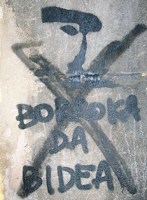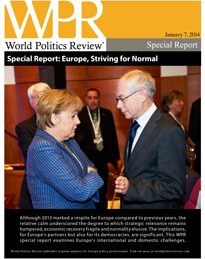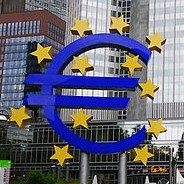
In NATO’s annual “state of the alliance” report published yesterday, Secretary-General Anders Fogh Rasmussen details the areas in which Russia and NATO expanded their “practical cooperation” last year. Russia continued to allow NATO governments to transport supplies to their military contingents in Afghanistan through Russian territory, and joined with the alliance in developing the Afghan Air Force through the NATO-Russia Council Helicopter Maintenance Trust Fund. NATO and Russia also expanded cooperation in counterterrorism, including the Vigilant Skies 2013 exercise, which simulated a joint mid-air response to the hijacking of civilian aircraft, and tests of their joint IED-detection technologies developed under […]






